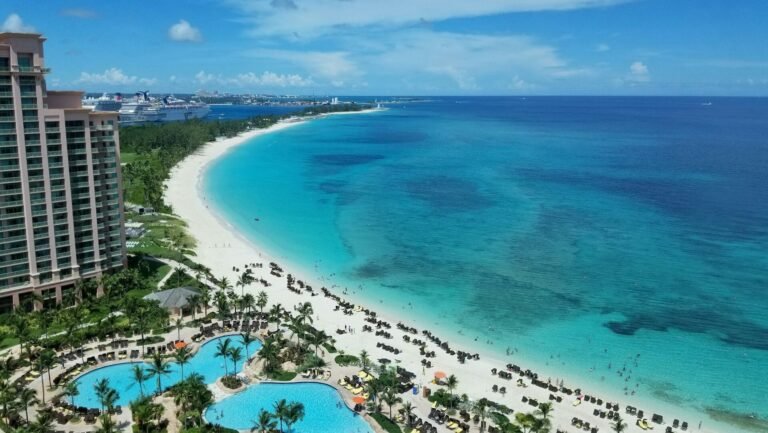Marinas in the Bahamas have reportedly seen a wave of cancellations in the wake of a new bill that increases fees for visiting boats and introduces new vessel regulations, effective 1 July 2025.
Speaking to local outlet The Tribune this week, Peter Maury, the Association of Bahamas Marinas (ABM) president, confirmed that members have been “calling him to report yacht charters are cancelling their bookings and reservations as far out as the 2025-2026 winter season” over uncertainty and concerns relating to revised cruising and fishing permit moves and associated fees.
Yacht and boating forums have been alight with pushback relating to the Port Authorities (Amendment) Bill, which increases fees for temporary cruising permits. For vessels up to 34 feet in length, the fee will rise to $500 for stays of up to 12 months. Boats measuring over 34 feet but under 100 feet will be subject to a $1,000 fee. For those exceeding 100 feet, the cruising fee will be set at $3,000.
The current cruising permit for a vessel less than 34 feet in length is $300 — meaning a 67 per cent increase — while the current levy for boats between 34 feet to 100 feet is $500 — meaning it is set to double.
Other charges, such as mooring and fishing permits, are also outlined in the regulations. A new Frequent Digital Cruising Card (FDCC) has been introduced, valid for two years and subject to certain restrictions. The FDCC requires a customs check-in and payment of any applicable additional fees. The cost is $1,500 for vessels up to 34 feet, $2,500 for those between 34 and 100 feet, and $8,000 for vessels over 100 feet.
The temporary cruising permit will permit a “pleasure vessel” to enter the Bahamas twice within a 30-day period. If the vessel carries more than three passengers, each additional person over the age of six who is not a resident of the Bahamas will be subject to a $30 per person passenger tax.
The updated anchorage fees for vessels not docked at a marina are set at $200 for boats up to 34 feet; $350 for vessels between 34 and 100 feet; and $1,500 for those exceeding 100 feet.
Further changes include that all foreign boats over 50 feet — either docked in or passing through the Bahamas — now require AIS systems, which must be switched on. Failure to comply is subject to a $1,000 fine.
The full text of the Port Authorities (Amendment) Bill is available online. A summary is available on The Triton.
Maury, speaking to The Tribune, said the uncertainty “could not have come at a worse time” with the budget-related changes scheduled to take effect on 1 July, just three days ahead of the US Independence Day holiday, a period that is typically significant for the local boating industry.
The ABM chief argued that the country has failed to give the industry adequate time to adjust to the changes and has been slow to “disseminate the message” about what is actually happening.
One of The Tribune‘s contacts in Bimini district told the outlet they had seen “plenty cancellations”, adding: “No way a single tripper, which is 90 per cent of Bimini visitors, are paying $800 before they leave the dock.”
One user on TrawlerForum posted: “We had planned to go over this winter for a while. Jeez, an extra $4k? We might rethink that plan now.” Another added: “This is the 18th summer in a row we have spent in the Bahamas. I’m pretty sure we will keep coming, but I’m not positive. And if we do come, we will have to find a way to cut expenses somewhere, which means less money in the local economy.”
Maury continues: “If they’d just increased the fees it wouldn’t be as bad, but now you have anchorage fees as well as your cruising permit and fishing permit.
“We’re now nickel and dime-ing everyone to pieces. It’s affecting everybody. A lot of boats think they have to get AIS and don’t want to install it. They haven’t taken time to properly disseminate the message.”
Read the latest marine, boat and boating news from the Caribbean

